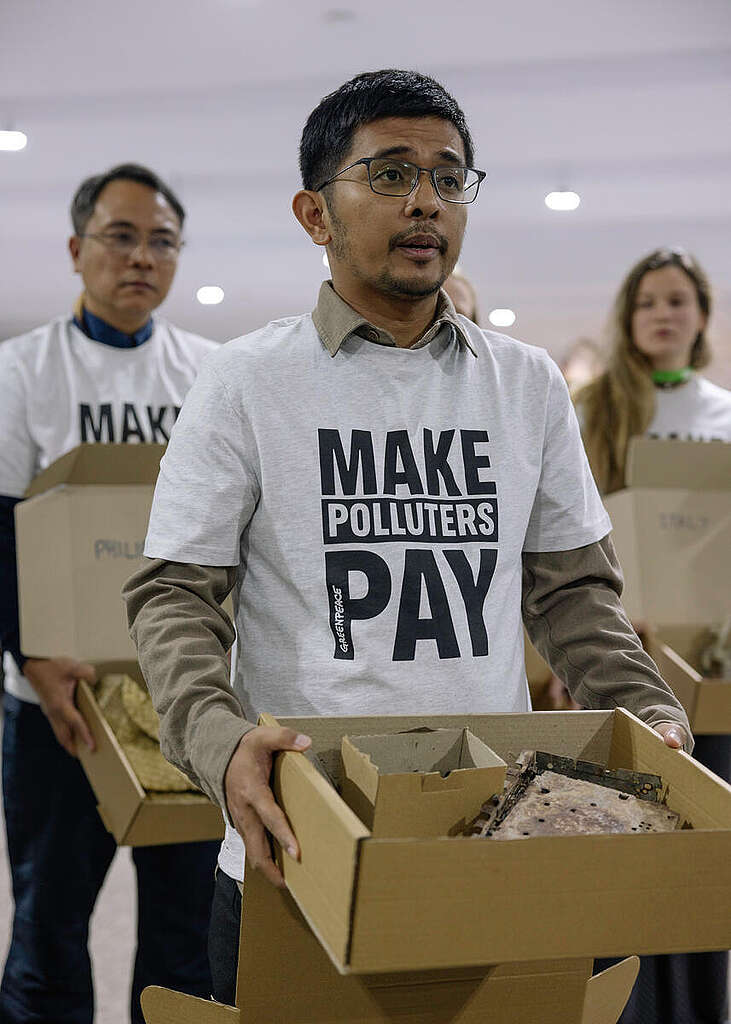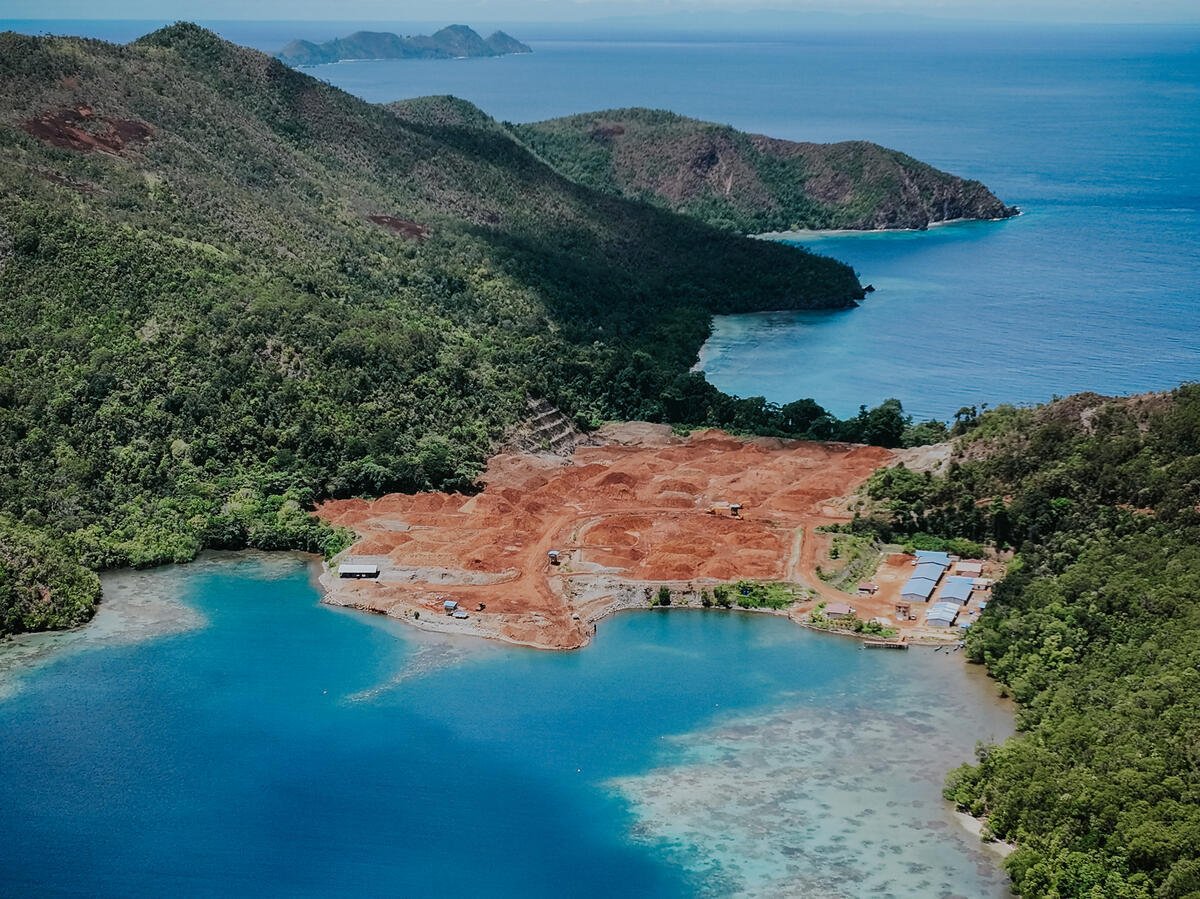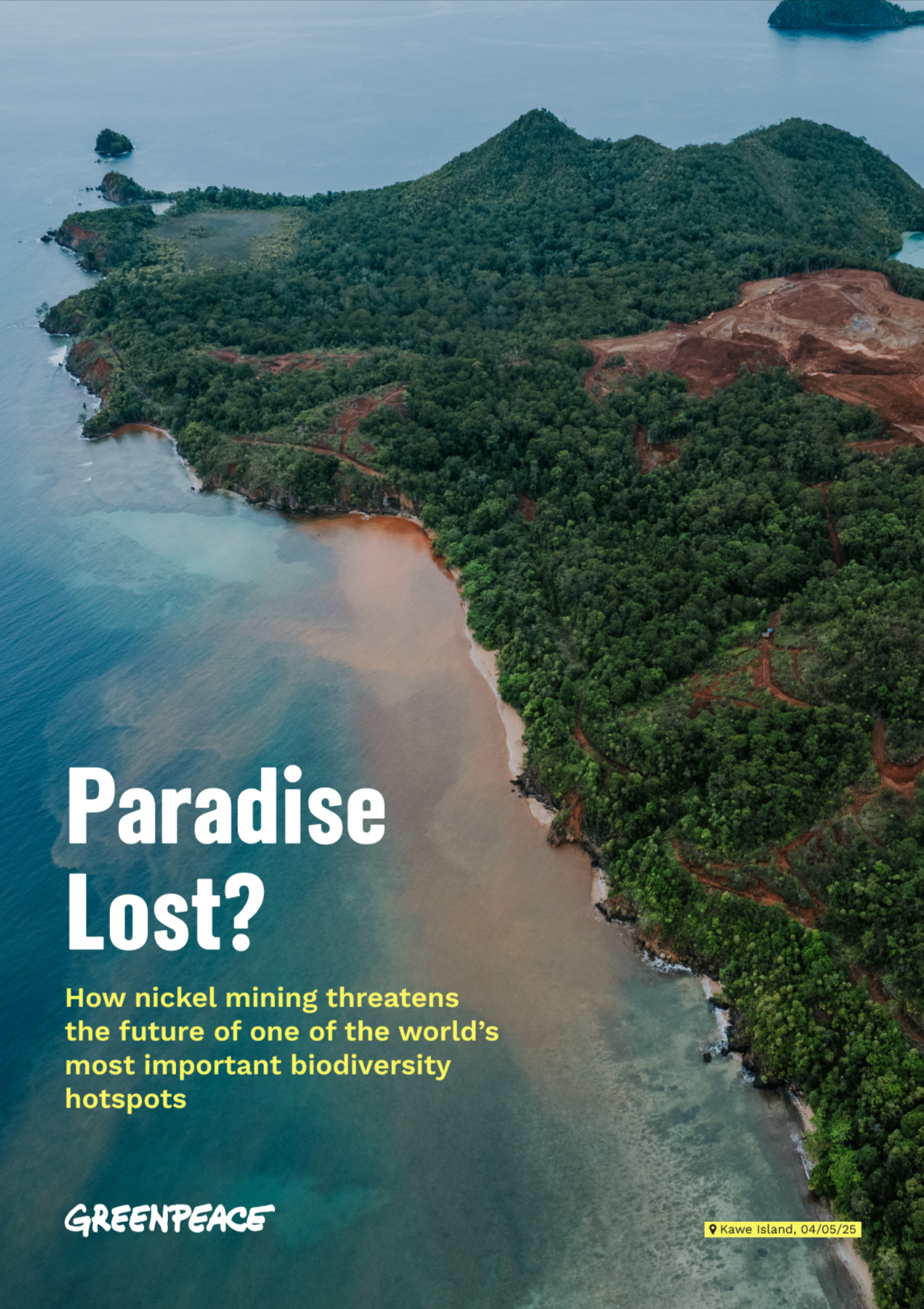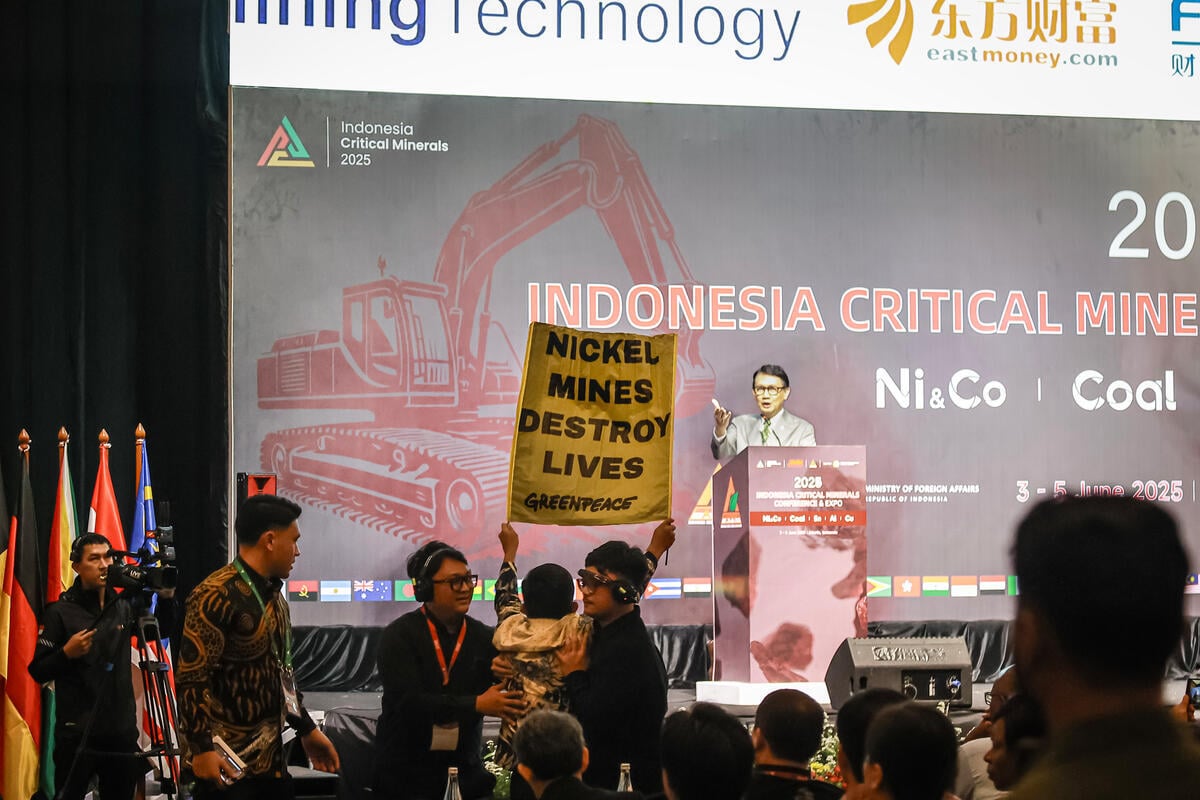Baku/Jakarta, 20 November 2024 – Greenpeace Indonesia pushed today for governments gathered at the UN’s annual climate talks to directly finance communities who do the real work of protecting high integrity, biodiverse and carbon-rich landscapes. Indonesia’s representatives have instead used the COP29 meeting to encourage carbon offset and trading schemes that allow polluters to carry on pushing the planet deeper into climate chaos.
Speaking at the sidelines of the talks in Baku, Azerbaijan, Greenpeace Indonesia forests campaigner Iqbal Damanik said:
“The fastest and most reliable way to remove carbon that is already in the atmosphere is through protecting and restoring primary forests. The people who do this best are Indigenous Peoples and local communities. And the funds to support this must come from those that can afford it, and go directly to those who need it.”

While negotiations at COP 29 on guidance for carbon offsets and markets are now in their second week, Greenpeace has warned that carbon offsets are a false solution. They amount to an emissions loophole, allowing polluters to employ accounting tricks to carry on putting climate and biodiversity at risk. A new systematic global assessment of 2346 offset projects found only 16% achieved emissions reductions. For the same reason Greenpeace is concerned by the distraction and risk posed by carbon capture and storage schemes and bioenergy projects, including one such project promoted by Hashim Djojohadikusumo, brother of Indonesian President Prabowo Subianto who is acting as Prabowo’s special envoy and head of the national delegation in Baku.
“The very premise of carbon trading itself is flawed – it’s a cheat scheme for polluters who must halt emissions, not look for false solutions. However, given carbon trading has now been included in the draft outcomes for climate talks in Baku, it must be noted that there are also serious uncertainties in methodologies and definitions used in counting and monitoring such schemes,” Iqbal said.
Kiki Taufik, Global Head of Greenpeace Indonesia’s Forest Campaign said from Jakarta:
“Furthermore, Greenpeace Indonesia has seen a catalogue of negative experiences in the country from various carbon offset projects that have been attempted in recent years. These range from problems with legality and land tenure in a West Seram carbon project, massive overclaiming of carbon savings on a project in central Kalimantan, fears of greenwashing via projects in Riau and West Kalimantan due to involvement of companies that are linked to deforestation elsewhere in Indonesia, through to concerns about breaches of Indigenous Peoples’ rights through land grabbing and failure to consult with or gain consent from local communities at a project in Aru.”
The credits from these projects are being used to justify continuing emissions by climate villains, such as Shell and Australia’s largest oil and gas producer, Woodside Energy.
Of 53 Indonesian carbon credit projects identified by preliminary research conducted by Greenpeace and Profundo, 15 are known to be ongoing, with 26 under development or waiting to begin. The remainder either did not start, have ended prematurely or had so little information available about the projects that their status is unknown.
“In recent years Indonesia has experienced a ‘carbon rush’ with at least 41 carbon offset projects underway or in development, while ‘carbon cowboys’ are visiting vulnerable forest communities, making pitches long on glowing promises but short on details. Leading Indonesian NGOs have stated that this carbon rush threatens to further disenfranchise Indigenous Peoples whose land rights remain largely unrecognised,” Kiki said.
“The common themes in Indonesia’s existing carbon projects are a failure to respect the rights of Indigenous Peoples and local communities; and greed that comes along with the profit motive inherent in a carbon trading system. Real climate and biodiversity solutions can begin by avoiding these two mistakes, by respecting rights and removing the profit motive.”
“We need a different approach where the goal is to protect land rights, biodiversity and carbon-rich high integrity landscapes, and the funds are provided directly to the communities that need support, without greenwashing continued climate wrecking emissions,” Kiki concluded.
Media Contacts
Iqbal Damanik, Greenpeace Indonesia, +62 811 4445 026 (in Baku, Azerbaijan)
Igor O’Neill, Greenpeace Indonesia, [email protected] +61 414 288 424
Notes to editor on Controversial Carbon Offset Cases
Katingan Peatland Restoration and Conservation Project, Central Kalimantan
Designed to protect carbon contained in a wide expanse of peatland, this project was based on a 2016 unsubstantiated prediction that the majority of the project area was destined to be drained and converted to become pulpwood plantations. However, in 2019 the government enacted peatland regulations that placed most of the Katingan project area under legal protection, dramatically lowering the risk of deforestation. Thus the ‘baseline’ amount of carbon emissions prevented by the project has arguably been substantially overestimated – in fact a Nikkei Asia investigation calculated in 2021 that the project had issued credits up to three times more than could be justified (while noting the project managers denied this.)
Cendrawasih Aru Project
This carbon trading project proposed by Melchor Group Indonesia reportedly involves almost 600,000 hectares on the Aru Islands, a biodiversity hotspot that inspired naturalist Alfred Russel Wallace’s contribution to the theory of evolution. It has attracted staunch criticism for failing to secure the Free, Prior and Informed Consent of affected Indigenous and local communities. Concerns have emerged of unclear plans, permitting issues and poor communication with local communities on the several small islands over which the project has secured various permits. A coalition of local residents and Indonesian NGOs including Greenpeace Indonesia has signed an open letter to the provincial and national government asking for the project to be halted and all permits to be reviewed.



